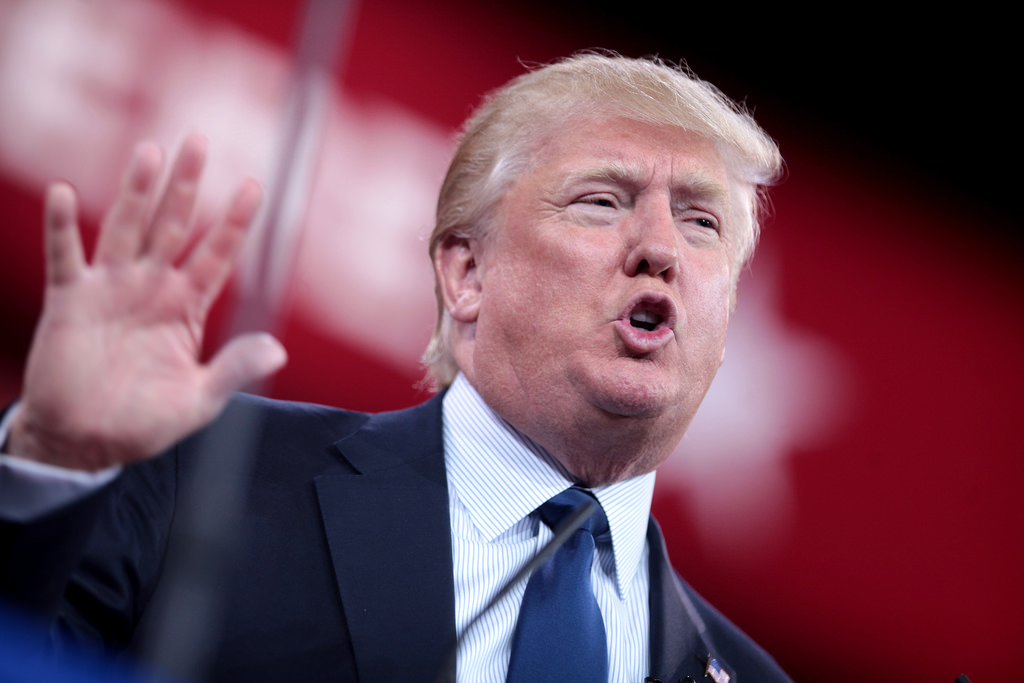
As higher education institutions focus on how to adapt in light of the unexpected ascendancy of Donald Trump to the presidency, college endowments may find themselves under intense scrutiny.
In his nearly 20-month campaign, President-elect Trump offered few substantive higher education policy proposals and displayed a penchant for contradicting himself on other policy matters affecting universities, such as federal immigration regulations. He did, however, rekindle a contentious debate of years past by indicating his willingness to revoke the tax-exempt status of multibillion dollar college endowments — such as Yale’s — if schools do not use more of these funds to address the burgeoning cost of attending college.
“These huge, multibillion-dollar endowments are tax-free, but too many of these universities don’t use the money to help with the tuition and student debt,” Trump said at a September rally in Pennsylvania. “We have to deal with these universities.”
As endowments have ballooned in size in recent years, their tax-exempt status has been a source of consternation for state and federal legislators alike. Earlier this year, the Connecticut state legislature did not move forward with a proposal to tax university endowments with funds of $10 billion or more. Yale is the only university in the state that would have been affected by the proposal.
In response to the proposal, the University presented testimony to the Connecticut Senate, arguing that taxing the University’s endowment would restrict Yale’s efforts to contribute to New Haven and the region through programs such as the New Haven Promise scholarships and a homebuyer program that encourages faculty and staff members to live in the city.
Yale was also one of 56 institutions that received requests for information regarding their endowment spending policies from federal lawmakers this February. Earlier this year, the chairman of the U.S. Senate Committee on Finance and House Committee on Ways and Means said universities with large endowments were not meeting their obligation to address the cost of college.
“Despite these large and growing endowments, many colleges and universities have raised tuition far in excess of inflation,” said a letter released by the committees.
Yale is one of seven schools nationwide to offer need-blind admissions for both domestic and international students. According to University Vice President for Development Joan O’Neill, returns from the endowments on alumni scholarship contributions help ensure that Yale is able to sustain this commitment even as the school prepares to welcome about 800 additional undergraduate students in the coming years.
While acknowledging the efforts of Yale and its peers, Charlie Eaton, a Stanford University-affiliated expert on the role of finance in higher education, noted that the increasing cost of attending college coupled with the advent of multibillion-dollar endowments at increasingly selective universities is “a recipe for outrage.”
“If very wealthy universities do nothing to broaden their service to the public good, these calls to tax endowments will only get louder,” Eaton said. “How exactly these endowments could be put to use for the broader good is an important discussion to have.”
Adding that the most intelligible and perceivable contribution to the public good that universities provide is through undergraduate education, Eaton suggested increasing enrollment numbers as one potential avenue for public service.
None of the four experts interviewed by the News agreed with Trump and legislators who argued that taxing endowments — or imposing strict spending requirements — would help address the cost of attending college.
According to Robert Kelchen, a Seton Hall University professor of higher education policy who compiles the Washington Monthly’s annual college rankings, calls to tax endowments “fit very well with the populist themes of this election cycle,” but could potentially hamper the ability of colleges to cut costs in the long run. He noted that if endowments are taxed, potential donors would be less enthused about contributing to colleges because they would be wary of a proportion of their money going directly to the government.
Kelchen added that due to the specified nature of many donations to colleges — Yale, for instance, has funds solely intended for the purchase of books written in shorthand — he was unsure of the extent to which colleges could be doing more to address affordability through spending from their endowments.
“Most people do not give a blank check to a college,” Kelchen said. “My sense is that colleges that have unrestricted funds are using those on financial aid anyway.”
Going a step beyond Kelchen, Yale economics professor and Nobel laureate Robert Shiller argued that taxing endowments would in fact adversely affect the ability of universities to serve the public.
Despite recognizing his “obvious bias” as a beneficiary of an endowed professorship, Shiller said the tax-exempt status of college endowments is an important higher education subsidy and reflects a commitment to prioritize education that he called “one of the reasons why America is great.”
“I think that the U.S. is currently underinvesting in education and we have to get back to where we were a few decades ago,” Shiller said. “Taxing endowments would mean that universities would not be able to give as any scholarships and worsen the current student debt crisis.”







